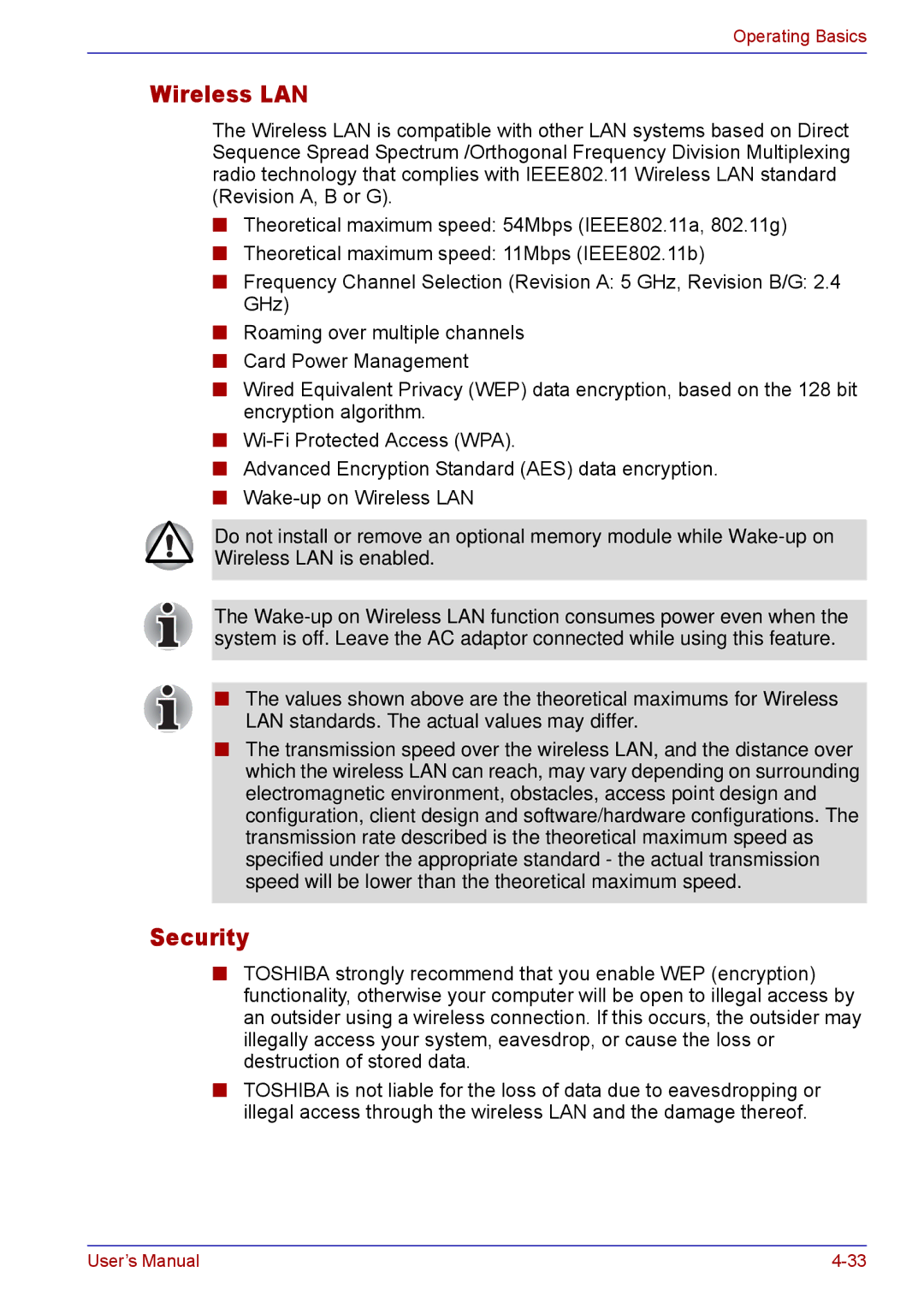
Operating Basics
Wireless LAN
The Wireless LAN is compatible with other LAN systems based on Direct Sequence Spread Spectrum /Orthogonal Frequency Division Multiplexing radio technology that complies with IEEE802.11 Wireless LAN standard (Revision A, B or G).
■Theoretical maximum speed: 54Mbps (IEEE802.11a, 802.11g)
■Theoretical maximum speed: 11Mbps (IEEE802.11b)
■Frequency Channel Selection (Revision A: 5 GHz, Revision B/G: 2.4 GHz)
■Roaming over multiple channels
■Card Power Management
■Wired Equivalent Privacy (WEP) data encryption, based on the 128 bit encryption algorithm.
■
■Advanced Encryption Standard (AES) data encryption.
■
Do not install or remove an optional memory module while
The
■The values shown above are the theoretical maximums for Wireless LAN standards. The actual values may differ.
■The transmission speed over the wireless LAN, and the distance over which the wireless LAN can reach, may vary depending on surrounding electromagnetic environment, obstacles, access point design and configuration, client design and software/hardware configurations. The transmission rate described is the theoretical maximum speed as specified under the appropriate standard - the actual transmission speed will be lower than the theoretical maximum speed.
Security
■TOSHIBA strongly recommend that you enable WEP (encryption) functionality, otherwise your computer will be open to illegal access by an outsider using a wireless connection. If this occurs, the outsider may illegally access your system, eavesdrop, or cause the loss or destruction of stored data.
■TOSHIBA is not liable for the loss of data due to eavesdropping or illegal access through the wireless LAN and the damage thereof.
User’s Manual |
